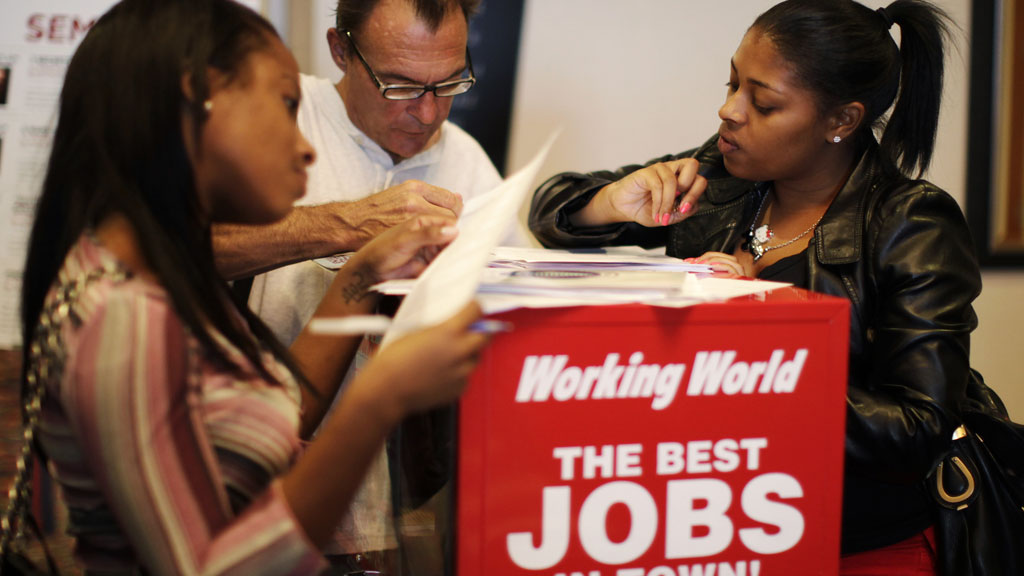Lower US unemployment may boost Obama
US employment falls to 7.8 per cent in September, giving a potential boost to Barack Obama during an election focused largely on economic leadership.

The headline-grabbing figures may be a welcome relief for Obama campaigners following a game-changing 90-minute presidential debate where the word “jobs” was mentioned more than once every two minutes. Some analysts predict September’s unemployment data will have a big impact as the unemployment rate figures resonate with voters.
Polls have indicated that the weak US economy and the high jobless rate – 8.1 per cent in August – were voters’ top consideration in deciding who they will vote for on 6 November.
The Bureau of Labor Statistics estimated 114,000 jobs were added in the US in September. The economy also created 86,000 more jobs in July and Augst than first estimated. Wages rose in September and more people started looking for work, the figures revealed. The revisions show employers added 146,000 jobs per month from July through September, up from 67,000 in the previous three months.
The unemployment level fell from 8.1 per cent in August, matching its level in January 2009 when President Obama took office.
‘Chronic unemployment’
There is one more unemployment report left on 2 November before the presidential election, which is being held in a climate of economic fear, stoked by politicians as well as the figures.
Republican candidate Mitt Romney has used unemployment figures to his advantage at every turn – including during Wednesday night’s debate when he accused President Obama of squeezing the middle class.
“You’ll see chronic unemployment. We’ve had 43 straight months with unemployment above eight per cent,” Mr Romney said.
The dynamics changed after the debate. Potomac Strategies Group political analyst Greg Valliere said in a research note to clients: “Obama is in trouble.”
Since January, US unemployment has wavered between 8.1 per cent and 8.3 per cent. That is lower than the previous 10 months where the figure fluctuated between 8.9 per cent and 9.1 per cent.
Faltering economy
While the faltering economic recovery has not boosted Obama’s re-election hopes, the monthly reports have so far not had much of an impact on his presidential campaign either.
Last month’s numbers, for example, were released one day after Obama’s acceptance speech to the Democratic National Convention. The figures did not affect his public opinion polls or voter perceptions that he would be as good as Republican rival Mitt Romney at creating jobs, however.
“I don’t think these jobs numbers have really sent a fundamentally different signal about the economy than what voters already know,” said John Sides, a George Washington University political scientist.
“These numbers, however much they represent real suffering among Americans, are not quite flashy enough to suggest either good news or really bad news,” he added.
‘Real suffering’
Mr Obama is likely to use the report to bolster his ability to create jobs in the wake of his poor performance in the debate. It will also give him ammunition in the face of criticism from Mitt Romney.
Unemployment has been a recurring theme for the Republican candidate, who on Thursday told Denver voters that the president would raise taxes on small businesses “which will kill jobs.”
“I instead want to keep taxes down on small business so we can create jobs,” Mr Romney said. “This is about good jobs for the American people.”